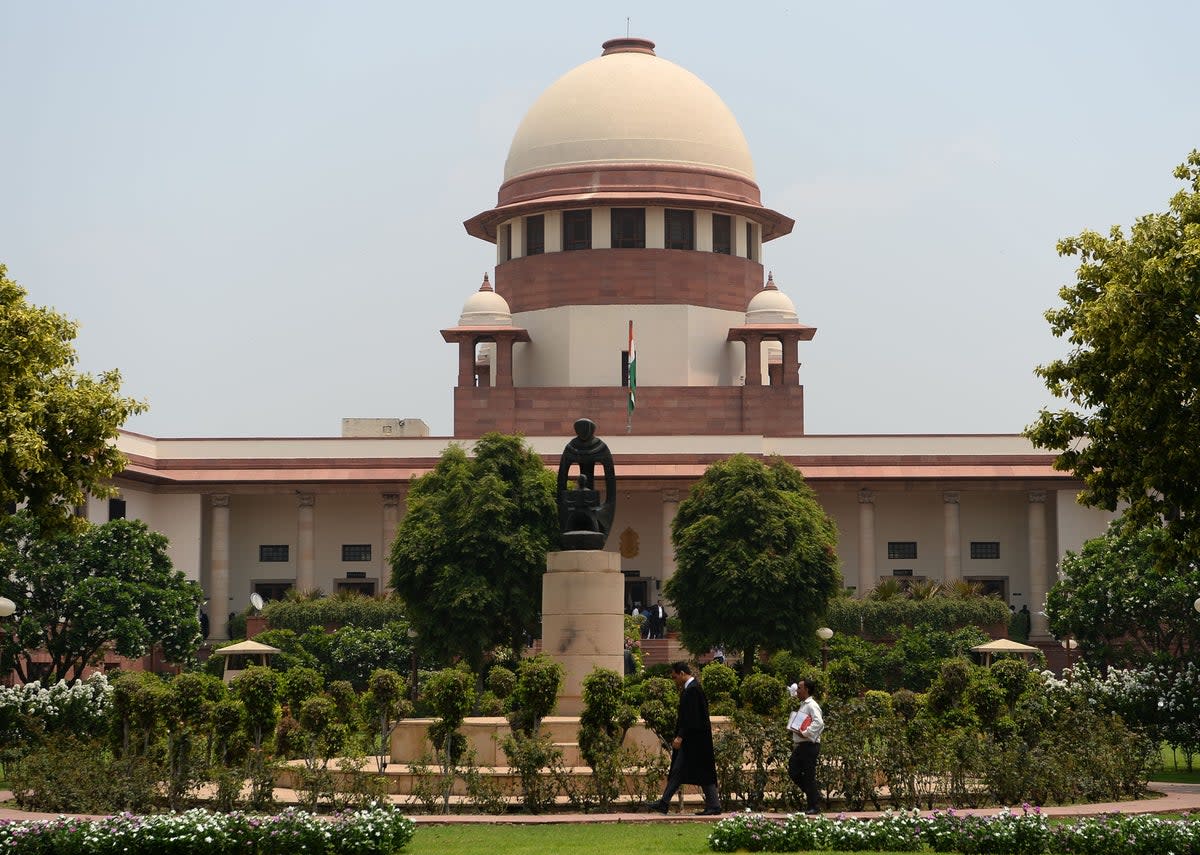Supreme Court criticises Indian government for quashing free speech in name of ‘national security’

India’s Supreme Court has heavily criticised Narendra Modi’s government for using national security as an excuse to deny legal remedies to citizens – actions that are “not compatible with the rule of law”.
The rebuke came in a judgment against the broadcast ban imposed on Malayalam language news channel MediaOne by the Bharatiya Janata Party-led government.
The court was hearing a special leave petition filed by Madhyamam Broadcasting Ltd (MBL), which runs the MediaOne channel, against an order issued by southern Kerala state’s high court on 2 March.
“While we have held that it would be impracticable and unwise for the courts to define the phrase national security, we also hold that national security claims cannot be made out of thin air,” the court was quoted as saying by the Indian Express newspaper.
“There must be material backing such inference,” the court said. “The state is using national security as a tool to deny citizens remedies that are provided under the law. This is not compatible with the rule of law,” said the Supreme Court bench, comprising India’s chief justice DY Chandrachud and justice Hima Kohli.
The Kerala High Court had upheld the federal information and broadcasting ministry’s decision to not renew the broadcast license of the channel for want of security clearance from the union home ministry.
Supreme Court : The State is using the plea of national security to deny the rights of the citizens. This is incompatible with the rule of law.#SupremeCourtOfIndia
— Live Law (@LiveLawIndia) April 5, 2023
Separate petitions had also been filed by the channel’s editor Pramod Raman and the Kerala Union of Working Journalists against the high court order.
On 31 January last year, the information and broadcasting ministry revoked permission given to MediaOne to uplink content after the home ministry refused to grant the channel fresh security clearance, reported Indian Express.
The Supreme Court said the home ministry had cited the channel promoters’s alleged links with the Jamaat-e-Islami Hind (JEIH) – an Islamic organisation in India – after which the channel’s license had been revoked.
It weighed in on the promoters’s links to JEIH. “When JEIH is not banned organisation, it will be rather precarious for the state to contend that links with the organisation would affect the sovereignty and integrity of the nation, the security of the state, friendly relations with foreign states or public order,” said the ruling.
The channel had subsequently gone off air.
Facing an earlier challenge from the channel in the Kerala High Court, the federal government said its decision was based on national security.
The high court had relied on the home ministry’s submission made in a sealed cover.
The Supreme Court criticised the sealed cover procedure in the high court as well as the “cavalier manner” in which the federal government had “raised the claim of national security” to deny the channel security clearance.
Meanwhile, a YouTuber arrested for allegedly spreading fake videos on migrant labourers from the eastern Bihar state being attacked in southern Tamil Nadu state was charged under the National Security Act (NSA) on Thursday.
Manish Kashyap was arrested from Bihar after a case was registered against him by Tamil Nadu’s Madurai city police.
The action against Mr Kashyap comes after videos of migrant workers allegedly being attacked in Tamil Nadu were shared widely on social media last month.
A number of old videos were circulated out of context in March 2023 with the claim that migrant labourers from Bihar were being attacked in Tamil Nadu. Know the truth behind many such fake claims in this Alt News round-up:pic.twitter.com/3bt4Q2hxHs
— Mohammed Zubair (@zoo_bear) April 1, 2023
“Manish Kashyap, who circulated fake videos of Bihari migrant labourers being attacked in Tamil Nadu has been detained under the NSA Act,” Madurai police superintendent Shiva Prasad was quoted as saying by PTI.
The videos were debunked as fake by fact checkers as well as Tamil Nadu police.
The state’s chief minister MK Stalin had also issued statements assuaging migrant workers’ concerns.
